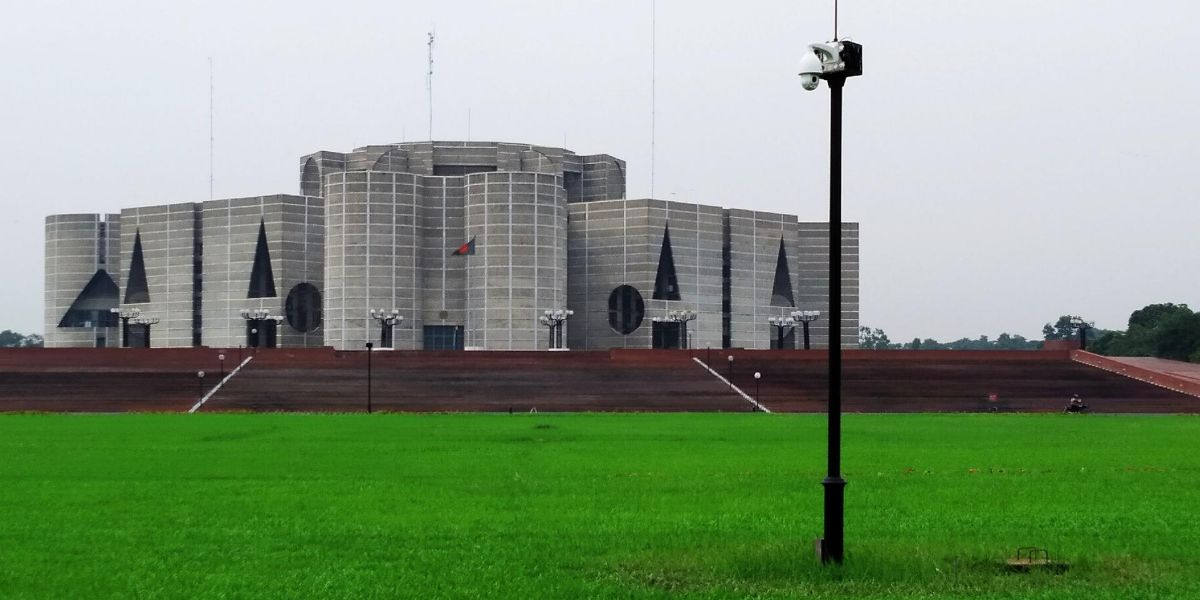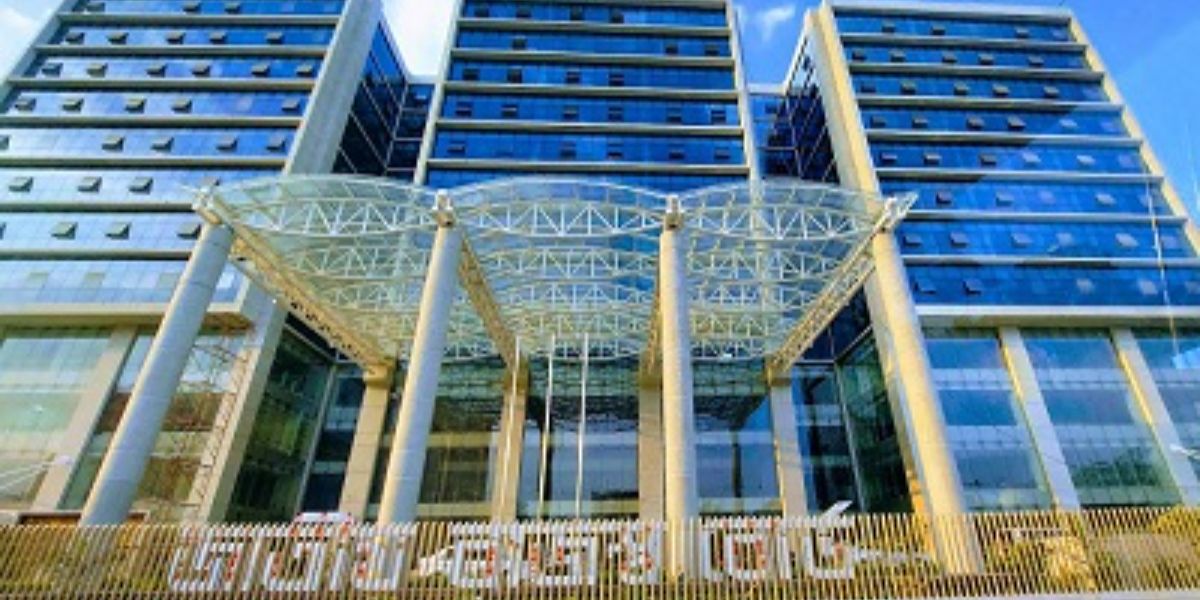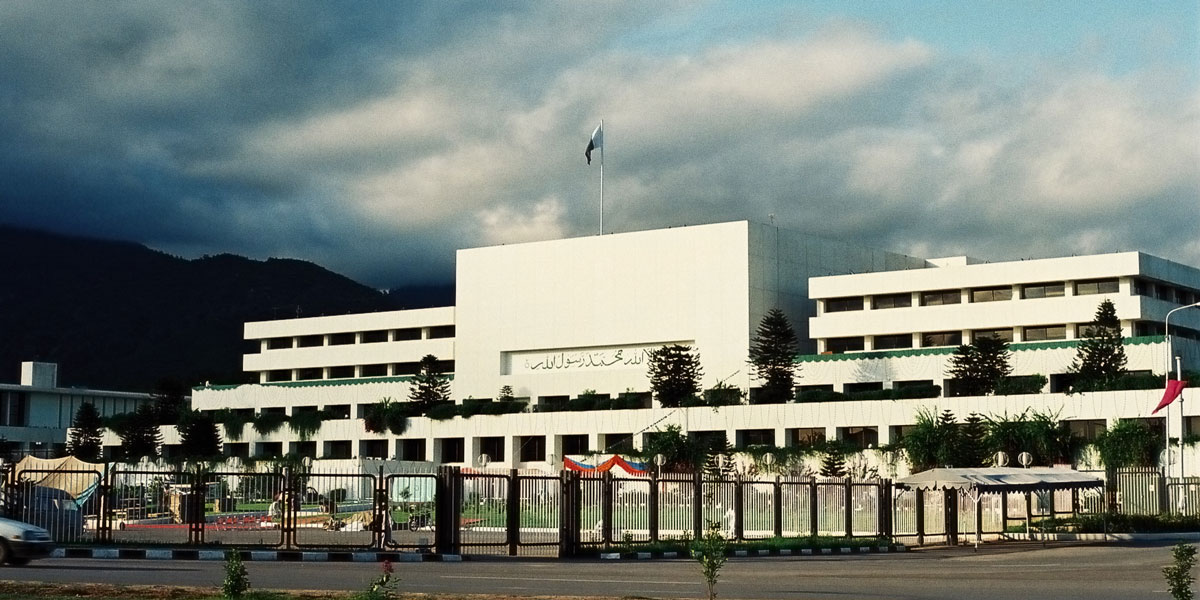The government’s growth forecast of 5.5% falls below the IMF’s estimate, signalling a shift away from chasing ambitious GDP targets and mega projects. The budget is set at BDT 7,90,000 crore, with a revenue budget of BDT 5,74,000 crore.
Bangladesh’s interim government advisory council approved the 2025-26 national budget today, 2 June 2025. Finance Adviser Salehuddin Ahmed said the budget focuses on realism over grand promises.
The government’s growth forecast of 5.5% falls below the IMF’s estimate, signalling a shift away from chasing ambitious GDP targets and mega projects. The budget is set at BDT 7,90,000 crore, with a revenue budget of BDT 5,74,000 crore.
The interim government plans to introduce tax and duty measures in the next fiscal year to support Bangladesh’s transition from LDC status and boost economic growth. These steps aim to lower business costs and align tax policies with LDC graduation needs. Finance ministry officials emphasised that these measures are essential to strengthen Bangladesh’s global competitiveness after graduation from LDC status.
The budget proposals aim to boost trade by reducing or eliminating duties on 622 products and cutting customs duty on 100 others. Key items include cold storage machinery, buses, cancer treatment equipment, paper products, pharmaceuticals, and raw materials for eco-friendly goods. The government also plans to exempt duties on LNG imports and pharmaceutical inputs. Additionally, the government intends to reduce penalties for import misdeclarations from 400% to 200%.
Key tax and duty measures in FY 2025-26
Corporate tax changes
The government is expected to reintroduce a 30% corporate income tax rate. The corporate tax rate for publicly listed companies will be reduced by 2.5%, taking effect from 1 July 2026. Meanwhile, non-listed companies will face a tax rate of 27.5% during the same two-year period.
Rickshaw battery import duty set to increase
The government plans to raise the import duty on batteries. Currently, batteries over 750 watts (typically 850-1,200 watts) have a low 1% duty, compared to 15% for those under 750 watts. From 2025-26, the duty on batteries up to 1,200 watts is set to rise to 20%.
US tariff response
The National Board of Revenue (NBR) has proposed zero import duties on 100 more products to counter the effects of 37% US tariffs on Bangladeshi exports imposed by the Trump administration. The list includes raw materials for textiles, industrial machinery, and military equipment. The government also seeks to expand duty-free imports to reduce tariff impacts and protect market access.
Pharmaceutical industry support
The government wants to expand duty exemptions on raw materials and medical equipment to cut healthcare costs and boost the pharmaceutical sector. To this end, 79 items will be added to the duty-free list, which will benefit cancer, kidney, and vascular disease drug manufacturers.
Support for toy and cricket accessories manufacturers
The government plans to slash duties on raw materials used in toys and cricket bats. The tariff on imported finished toys may be set at USD 4 per kg, and the duty on willow wood for cricket bats may drop from 37% to 26%.
Reduced import duty on sugar
The government may cut the duty on refined sugar imports from BDT 4,500 to BDT 4,000 per tonne.
Incentives for software exports
The government plans to cut import duty on development tools, operating systems, databases, and security software from 10% to 5%.
Reduce duties on public transport
The import duty on 16-40 seat buses may drop from 10% to 5%, and the supplementary duty on 10-15 seat microbuses could decrease from 20% to 10%.
Increased duties on luxury imports
The government plans to ease duties on luxury goods. For example, the tariff value for lipsticks and face wash may double to USD 40 per kg, with a similar increase expected for chocolates.
Helicopter import duty hike
The duty on imported helicopters will be increased from 1% to 10%.
VAT exemption on LNG imports
The budget is expected to exempt LNG imports from the 15% VAT to reduce energy costs for power generation.
Cold storage facilities support
The government plans to exempt duty on cold storage machinery, including compressors, to stabilise prices and reduce post-harvest losses.
Excise duty exemption threshold increase on bank balances
The government may raise the excise duty exemption threshold on bank balances from BDT 1 lakh to BDT 3 lakh to help small depositors.
Higher VAT on construction
The VAT on construction services has increased from 7.5% to 10%.
Increased VAT on online sales commissions
VAT on commissions from online sales platforms will be increased from 5% to 15%.
Higher VAT rates on paper and plastic goods
VAT on self-copy paper, duplex boards, and coated paper production has increased from 7.5% to 15%. Plastic tableware, kitchenware, household goods, hygiene products, and toilet items will now have a 15% VAT, up from 7.5%.
Higher VAT on blade production
The VAT on blade production has increased from 5% to 7.5%, along with wire cutters, screws, connectors, nuts, bolts, electric line hardware, and pole fittings.
Higher specific tax on mild steel products
The tax on mild steel products will increase by about 20%
Increased specific tax on cotton yarn
The tax on cotton yarn has increased from BDT 3 to BDT 5 per kg, with the same rate applying to yarn made from man-made fibres or blends.
Reduced AIT on raw materials imports
The advance income tax (AIT) on raw material imports by manufacturers will drop from 3% to 2%.
Withholding and turnover tax rates
The latest budget introduces several adjustments to withholding and turnover tax rates aimed at optimising tax collection and supporting specific industries.
- The maximum withholding tax rate for contractors is lowered from 7% to 5%.
- The withholding tax rate on essential goods such as paddy, rice, wheat, potatoes, jute, and raw tea leaves is reduced from 1% to 0.5%.
- The tax collection rate at the source for capital gains on land transfers is adjusted, decreasing from the current 8%, 6%, and 4% (based on location) to 6%, 4%, and 3%, respectively.
- The withholding tax rate for raw materials supplied to the recycling industry is cut in half, from 3% to 1.5%.
- The withholding tax rate for gas distribution companies is reduced from 2% to 0.6%.
- Based on projected profit margins, companies engaged in oil refining will see their withholding tax rate on oil supplies drop from 2% to 1.5%.
- The withholding tax rate for Internet service providers has been reduced from 10% to 5%.
- The withholding tax rate on interest earned from securities is raised from 5% to 10%.
- Electricity purchases are subject to a reduced withholding tax rate from 6% to 4%.
- Rent payments now incur a higher withholding tax rate, increasing from 5% to 10%.
- The advance tax rate applied to cigarette manufacturers’ net sales value is raised from 3% to 5%.
- Mobile operators benefit from a lower turnover tax rate, which declines from 2% to 1.5%.
- The turnover tax rate for all other businesses is now 1% except for mobile operators, tobacco, and carbonated beverages.
Personal income tax changes
The tax-free personal income tax (PIT) threshold of BDT 3.5 lakh will remain unchanged for FY 2025-26. However, it will increase to BDT 3.75 lakh for the 2026–27 and 2027–28 assessment years. For “July Warriors”—those injured in the July 2024 uprising—the tax-free income limit is BDT 5.25 lakh.
Finance adviser unveils austerity budget amid job crisis and legacy challenges
Finance adviser Salehuddin Ahmed is determined to deliver a realistic message focused on endurance and tough decisions for the 2025-26 budget. The budget also signals a shift from past fiscal policies and addresses the controversial legacy of the previous regime. Ahmed plans to reduce spending by BDT 7,000 crore, bringing the budget to BDT 790,000 crore for the new fiscal year, signalling tighter financial management.
Unemployment has been ignored for far too long. While the economy has grown, creating roads and buildings, and other significant infrastructure developments, millions are still without proper employment.
The Interim Government’s Chief Adviser, Muhammad Yunus, prioritised zero unemployment for the country.
“A growing disconnect between the skills imparted by our education system and the requirements of the private sector continues to limit employment opportunities At the same time, a significant portion of the workforce remains trapped in the informal sector, where job security and benefits are minimal or absent,” said Selim Raihan, a professor of economics at Dhaka University.
The 2025-26 budget measures will go into effect on 1 July 2025.














